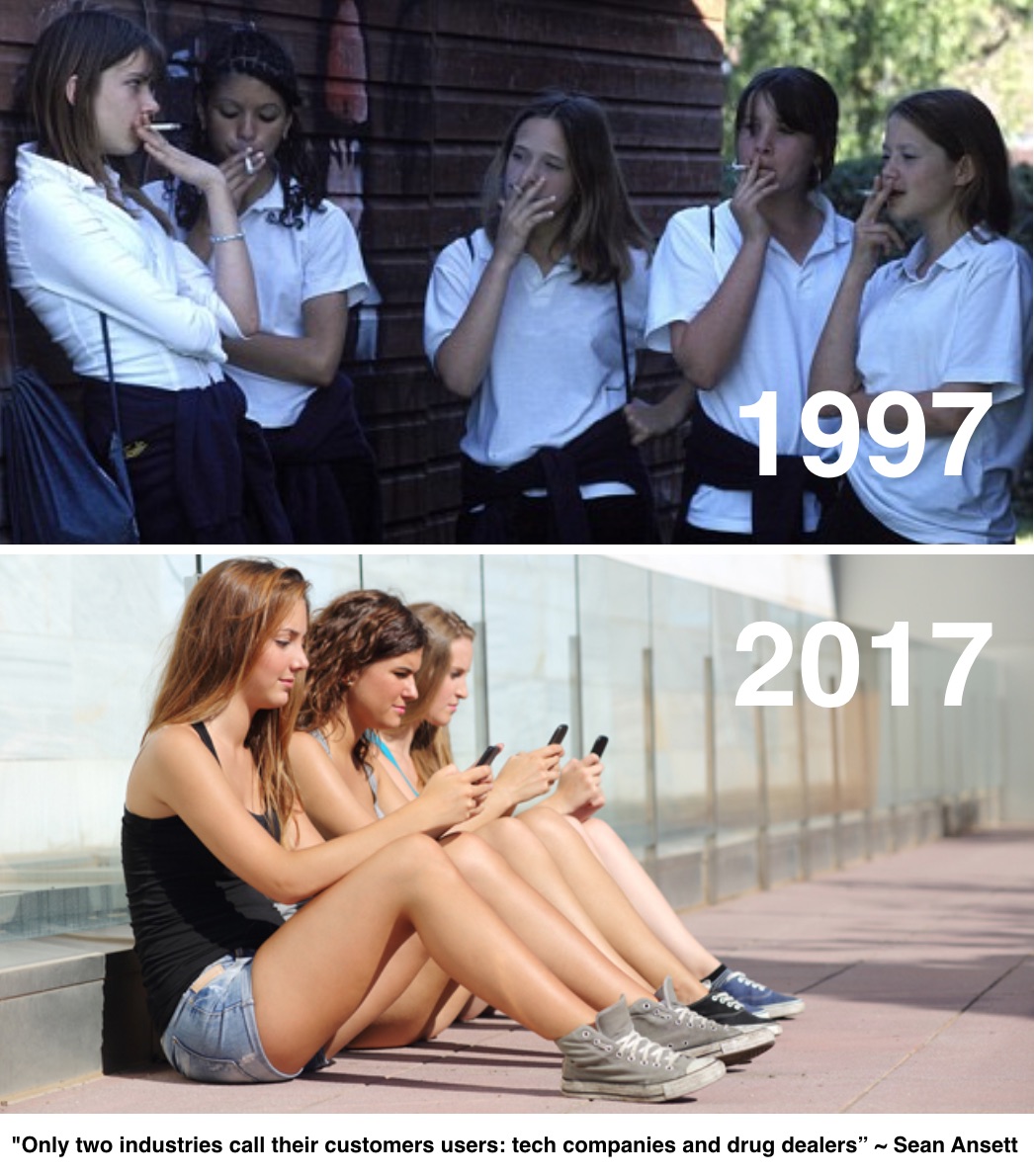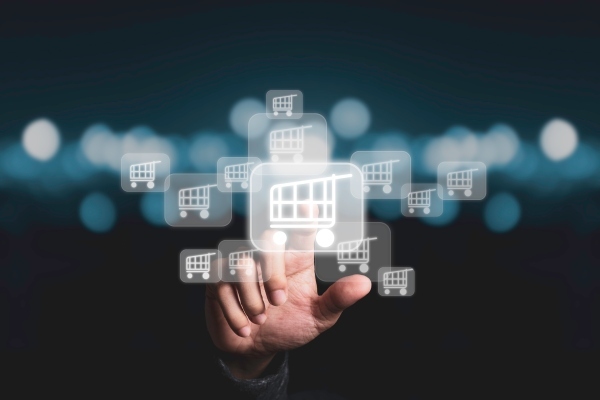
Social media has become the new nicotine.
You’ve seen the posts and videos criticizing millennials for being addicted to their phones. But why did we never criticize past generations for being addicted to cigarettes?
Because we knew the tabacco companies were using manipulative strategies to knowingly get people addicted and keep people addicted.
If we realized that the largest tech companies were using the same chemical science to addict us to their apps and products, would we spend a little less time blaming the users and more time putting some safeguards in place at the source of the issue?
This week Facebook ex-President, Sean Parker, spoke out against the addictive impact Facebook now has, saying:
“The thought process that went into building these applications, Facebook being the first of them.. was all about: ‘How do we consume as much of your time and conscious attention as possible?’”
“And that means that we need to sort of give you a little dopamine hit every once in a while, because someone liked or commented on a photo or a post or whatever, and that’s going to get you to contribute more content, and that’s going to get you more likes and comments.”
“It’s a social-validation feedback loop. Exactly the kind of thing that a hacker like myself would come up with, because you’re exploiting a vulnerability in human psychology.”
“The inventors, creators - it’s me, it’s Mark (Zuckerberg), it’s Kevin Systrom on Instagram, it’s all of these people - understood this consciously.”
“And we did it anyway.”
According to a 2016 National Institutes of Health study, DSM-5 Criteria for drug abuse and gambiling disorders can be used effectively to identify cell phone addiction.
Meaning smart phone addiction is a mental health issue.
"Only two industries call their customers users: tech companies and drug dealers” ~ Sean Ansett
We treat drug addicts and help gambling addicts, but smart phone addicts? Not so much. Even though the time spent on mobile apps has been growing 69% year-on-year, and the average American now spends 5 hours a day on their smart phone.
The addiction now even has a word: “Nomophobia”, which is the fear of being without your phone.
Some crazy stats:
Young adults (age 15–24) check their smartphones an average of 150 times per day (or every six minutes), and send an average of 110 texts per day (New York Times report, 2017 - Pew Research Study)
50% of surveyed teens admitted that they felt addicted to their mobile devices. (Lake Research Partners, Device Addiction Survey (2017))
60% of U.S. college students consider themselves to have a cell phone addiction (Roberts, J., Yaya, L., & Manolis, C. (2014) The invisible addiction)
This is an issue the largest tech companies know of, but they continue with new strategies to increase addiction anyway.
Social media has not only become the new nicotine, it is more addictive and more wide-spread. As for the damage, the mental health impact is only just being measured, but is less easy to measure than the lung health impact of cigarettes (which still took decades to prove). Even so, the social impact is clear all around us.
So while we can all point to millennials (and ourselves) and say we’re using the phone too much and should change, at what point do we say tech companies also have a moral responsibility?
There are clearly huge benefits in how the internet and our smart phones have connected us, but there’s also a fine line that companies could easily design to keep us in the safe zone. For example, Nintendo has built in features in many of their games to stop players from over-playing.
While other tech companies work to keep our attention at any cost.
Roger McNamee, an investor in Facebook and Google, says, “The people who run Facebook and Google are good people, whose well-intentioned strategies have led to horrific unintended consequences. The problem is that there is nothing the companies can do to address the harm unless they abandon their current advertising models.”
For over fifty years, the tabacco industry argued that consumers had the free will to smoke or not, until it was proven that the addictiveness of nicotine was making their will not so free after all.
The result? The entire industry was brought to account with laws, bans and warnings.
Today’s tech companies use the same arguments.
In 10 years time, will the hard core tech companies be seen in the same light as the tabacco companies are now? Will regulation be needed to restrain them? Or will the industry self-regulate?
In the meantime, the current 24-hour all-you-can-eat-free-dopamine-buffett continues. And over time more founders like Sean Parker will step up and expose the issue for what it is. Why? As he said this week:
“God only knows what it’s doing to our children’s brains.”















Leave a Reply